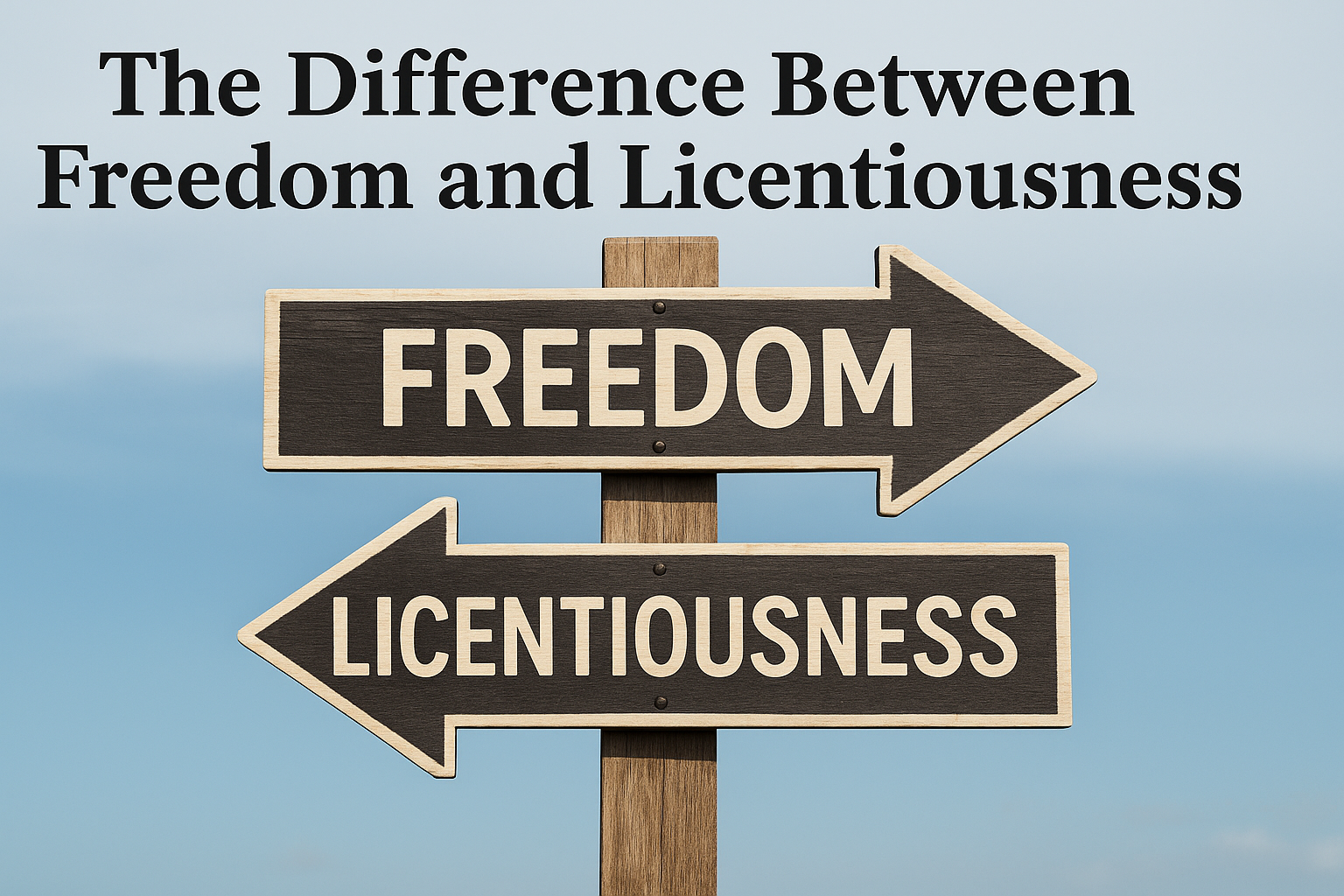Freedom is one of the most valued ideals in the modern world. It’s associated with independence, empowerment, and the ability to live life on your own terms. However, freedom is often misunderstood or confused with licentiousness—a concept that, while it may appear similar on the surface, leads to very different outcomes.
In this article, we’ll explore the key differences between freedom and licentiousness, why it’s important to distinguish them, and how choosing true freedom leads to a more meaningful, respectful, and responsible life.
What Is Freedom?
Freedom is the ability to make choices and take actions without external control, within the boundaries of respect, responsibility, and moral awareness. It’s a core principle in democratic societies and a vital part of personal development.
True freedom includes:
- Autonomy – Making your own decisions
- Responsibility – Accepting the consequences of your actions
- Respect – Recognizing the rights and well-being of others
- Self-control – Acting in alignment with values and principles
Freedom empowers individuals to grow, contribute to society, and live with dignity.
What Is Licentiousness?
Licentiousness is the excessive and irresponsible use of freedom, where actions are driven solely by personal desire, without regard for consequences, rules, or the impact on others. It often leads to chaos, harm, and moral decay.
Characteristics of licentiousness include:
- Disregard for laws or social norms
- Lack of respect for others’ boundaries
- Justifying harmful behavior as “freedom”
- Pursuing pleasure without ethical restraint
While it may appear as a form of ultimate freedom, licentiousness actually creates a form of bondage—one that leads to broken relationships, lost trust, and internal emptiness.
Key Differences Between Freedom and Licentiousness
| Aspect | Freedom | Licentiousness |
|---|---|---|
| Driven by | Values, purpose, and responsibility | Impulse, selfishness, and indulgence |
| Respects others | Yes, considers the well-being of others | No, disregards others’ rights or feelings |
| Leads to | Growth, peace, and stability | Harm, regret, and instability |
| Involves | Self-discipline and boundaries | Lack of control and disregard for consequences |
| Builds | Trust and personal integrity | Conflict and moral confusion |
Understanding this difference is crucial—not just for personal development, but also for maintaining a healthy society.
Why This Distinction Matters
1. Personal Integrity
Living in true freedom strengthens your identity and self-respect. When you act within ethical and personal boundaries, you build character and develop trust with yourself and others.
2. Social Harmony
Freedom, when exercised responsibly, contributes to peaceful communities. Licentious behavior, however, often leads to broken relationships, social conflict, and emotional harm.
3. Long-Term Fulfillment
Freedom supports long-term happiness because it’s grounded in purpose, balance, and contribution. Licentiousness might offer temporary pleasure but often leads to guilt, regret, and isolation.
Real-Life Examples
To better understand the contrast, let’s look at a few everyday examples:
- Speech
- Freedom: Sharing your thoughts respectfully, even if they challenge norms.
- Licentiousness: Using speech to insult, provoke, or harm others under the excuse of “speaking freely.”
- Relationships
- Freedom: Choosing a partner who aligns with your values and respecting boundaries.
- Licentiousness: Manipulating, cheating, or using people emotionally or physically.
- Work and Career
- Freedom: Choosing a path that aligns with your passions and making ethical decisions.
- Licentiousness: Exploiting others or cutting corners for personal gain.
In each case, freedom uplifts while licentiousness damages.
How to Practice True Freedom
1. Know Your Values
Start by identifying what matters most to you: integrity, compassion, honesty, justice, etc. These values act as your compass in decision-making.
2. Set Healthy Boundaries
Boundaries help you protect your freedom while respecting the freedom of others. They define what is acceptable and what is not.
3. Be Accountable
Freedom always comes with accountability. Own your choices, and be willing to face the outcomes—positive or negative. This builds strength and credibility.
4. Respect Others’ Rights
Your freedom ends where another person’s freedom begins. Always consider how your actions affect those around you, even when acting in your own interest.
5. Pursue Growth, Not Just Pleasure
True freedom is about becoming your best self—not indulging every desire. Choose actions that lead to long-term growth rather than short-term gratification.
Conclusion: Freedom Elevates, Licentiousness Destroys
Freedom is one of the greatest gifts you can have—but only when it is exercised with wisdom, purpose, and compassion. It is not about doing whatever you want, whenever you want. It’s about choosing what is right, even when it’s hard.
Licentiousness may look like freedom at first glance, but it’s an illusion. It removes boundaries and responsibility, leading to damage both internally and externally.
In the end, true freedom elevates your life, deepens your relationships, and empowers you to become who you were meant to be.
Choose freedom. Not the illusion of it.

